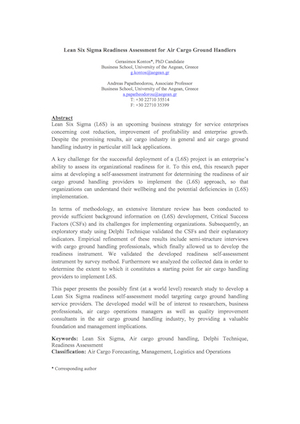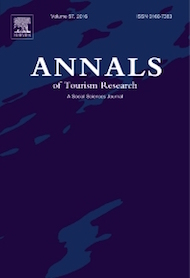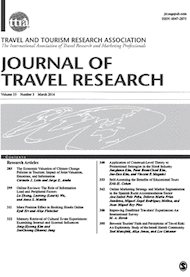Lean Six Sigma (L6S) is an upcoming business strategy for service enterprises concerning cost reduction, improvement of profitability and enterprise growth. Despite the promising results, air cargo industry in general and air cargo ground handling industry in particular still lack applications. A key challenge for the successful deployment of a (L6S) project is an enterprise’s ability to assess its organizational readiness for it. To this end, this research paper aims at developing a self-assessment instrument for determining the readiness of air cargo ground handling providers to implement the (L6S) approach, so that organizations can understand their wellbeing and the potential deficiencies in (L6S) implementation. In terms of methodology, an extensive literature review has been conducted to provide sufficient background information on (L6S) development, Critical Success Factors (CSFs) and its challenges for implementing organizations. Subsequently, an exploratory study using Delphi Technique validated the CSFs and their explanatory indicators. Empirical refinement of these results includes semi-structure interviews with cargo ground handling professionals, which finally allowed us to develop the readiness instrument. We validated the developed readiness self-assessment instrument by survey method. Furthermore we analyzed the collected data in order to determine the extent to which it constitutes a starting point for air cargo handling providers to implement L6S. This paper presents the possibly first (at a world level) research study to develop a Lean Six Sigma readiness self-assessment model targeting cargo ground handling service providers. The developed model will be of interest to researchers, business professionals, air cargo operations managers as well as quality improvement consultants in the air cargo ground handling industry, by providing a valuable foundation and management implications.







